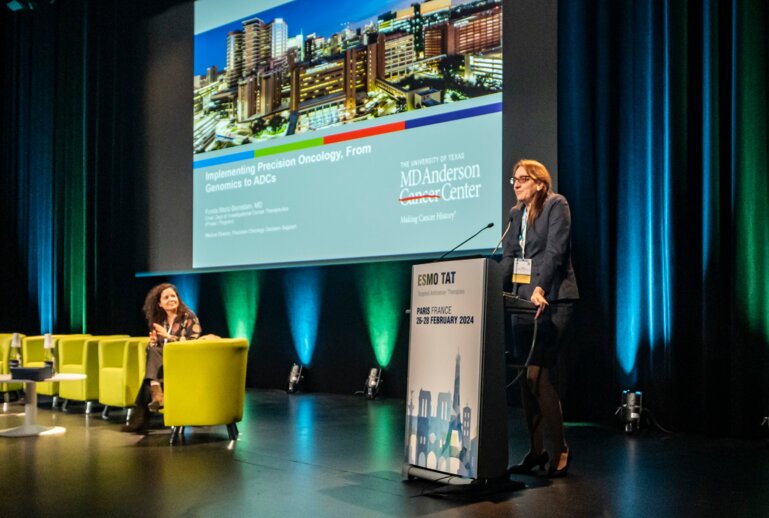
Novel tissue-agnostic biomarker approaches could improve response to immunotherapy
Several studies describe pan-cancer approaches utilising the latest technology for better patient selection and outcomes

Several studies describe pan-cancer approaches utilising the latest technology for better patient selection and outcomes

Growing evidence shows that AI models can predict a patient's disease trajectory and signal the need for early therapeutic intervention

The 2024 TAT Honorary Awardee Prof. Funda Meric-Bernstam discusses progress made and how to overcome current obstacles in the field

Well-designed real-world observational studies are hypothesis-generating and impact therapeutic decisions

Recent studies show how digital health apps enhance the patient experience, and improve multiple quality of life domains and in some cases, adherence to treatment, but their integration into the healthcare system is still a challenge

Digital tools offer potential solutions to personalise the patient journey, but more effort is needed to integrate them into current healthcare settings

Cancer imaging and identification of predictive biomarkers are the best performed tasks reported in studies presented at ESMO Congress 2023

Molecular characterisation of tumour subtypes and immunotherapy are key areas attracting researchers’ efforts that may shape the future of clinical practice, according to ESMO President Prof. Andrés Cervantes

Teresa Del Giudice is the 30,000th ESMO Member. In this interview she explains what motivated her to join the community.

Technology promises to improve understanding of cancer risk and lesion biology, but clear regulation is urged to implement innovation in cancer screening programmes
This site uses cookies. Some of these cookies are essential, while others help us improve your experience by providing insights into how the site is being used.
For more detailed information on the cookies we use, please check our Privacy Policy.
Necessary cookies enable core functionality. The website cannot function properly without these cookies, and you can only disable them by changing your browser preferences.